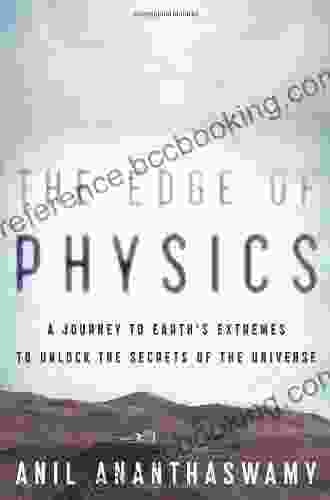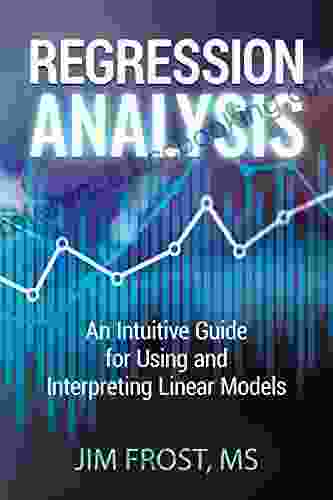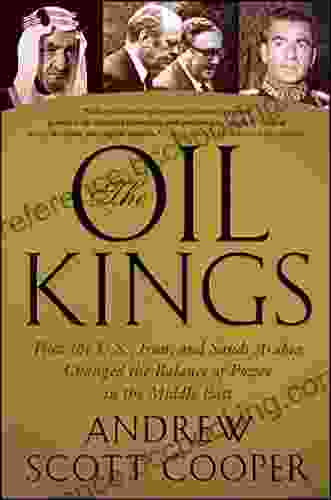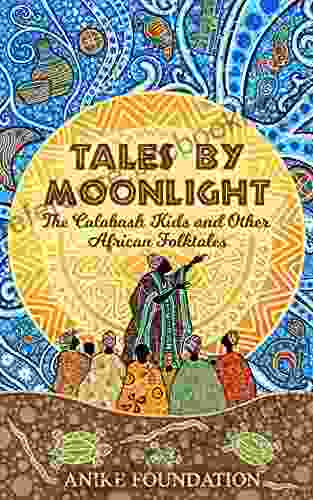The Delicate Balance of Power: How Iran and Saudi Arabia Reshaped the Middle East

In the ever-shifting tapestry of the Middle East, Iran and Saudi Arabia have played pivotal roles as key players in shaping the region's political, economic, and social landscapes. Their complex relationship, marked by both rivalry and cooperation, has had a profound impact on the balance of power in this volatile and strategically important part of the world.
4.5 out of 5
| Language | : | English |
| File size | : | 18183 KB |
| Text-to-Speech | : | Enabled |
| Screen Reader | : | Supported |
| Enhanced typesetting | : | Enabled |
| X-Ray | : | Enabled |
| Word Wise | : | Enabled |
| Print length | : | 546 pages |
Historical Tensions: A Legacy of Rivalry
The roots of the tensions between Iran and Saudi Arabia lie deep in history, particularly in the realm of religion. Iran is predominantly Shia Muslim, while Saudi Arabia adheres to Sunni Islam. This religious divide has fueled political and ideological differences, creating a natural rivalry between the two nations.
In addition to religious differences, territorial disputes and geopolitical ambitions have further strained relations between Iran and Saudi Arabia. Both countries have sought to exert regional influence, leading to proxy conflicts and support for opposing factions in various regional conflicts.
Strategic Alliances: Balancing Act in a Complex Region
Despite their ongoing rivalry, Iran and Saudi Arabia have also engaged in strategic alliances when their shared interests aligned. A primary example of this is their cooperation in the oil industry, where they have coordinated production and pricing policies through OPEC (Organization of the Petroleum Exporting Countries).
Furthermore, both countries have sought allies outside the region to balance against each other's influence. Iran has forged close ties with Russia and China, while Saudi Arabia has maintained strong relations with the United States and its Western allies.
Regional Conflicts: The Battle for Influence
The rivalry between Iran and Saudi Arabia has played out through numerous regional conflicts, where they have supported opposing sides. In the Syrian Civil War, Iran has backed the Assad regime, while Saudi Arabia has supported rebel groups.
Similarly, in the Yemeni Civil War, Saudi Arabia has led a coalition of Arab states against Iran-backed Houthi rebels. These conflicts have further intensified the animosity between the two countries and have contributed to the overall instability of the Middle East.
The Post-2015 Era: Shifting Dynamics
The signing of the Joint Comprehensive Plan of Action (JCPOA) in 2015, which limited Iran's nuclear program, marked a significant turning point in Middle Eastern geopolitics. It led to a brief period of détente between Iran and Saudi Arabia, as both countries sought to capitalize on the economic opportunities presented by the lifting of sanctions on Iran.
However, the assassination of Iranian General Qasem Soleimani by the United States in 2020 and the subsequent escalation of tensions between Iran and the US brought the rivalry between Iran and Saudi Arabia back into sharp focus. The incident highlighted the fragility of the regional balance of power and the potential for further conflict.
: A Delicate and Uncertain Future
The relationship between Iran and Saudi Arabia remains a complex and dynamic one, characterized by both competition and cooperation. The interplay of religious differences, geopolitical ambitions, and regional conflicts has shaped the delicate balance of power in the Middle East.
The future of this relationship is uncertain and will depend on a range of factors, including the outcome of ongoing conflicts, the policies of major external powers, and the domestic dynamics within each country. However, it is clear that Iran and Saudi Arabia will continue to be key players in the Middle East, and their rivalry and cooperation will have a profound impact on the region for years to come.
4.5 out of 5
| Language | : | English |
| File size | : | 18183 KB |
| Text-to-Speech | : | Enabled |
| Screen Reader | : | Supported |
| Enhanced typesetting | : | Enabled |
| X-Ray | : | Enabled |
| Word Wise | : | Enabled |
| Print length | : | 546 pages |
Do you want to contribute by writing guest posts on this blog?
Please contact us and send us a resume of previous articles that you have written.
 Book
Book Novel
Novel Page
Page Chapter
Chapter Text
Text Story
Story Genre
Genre Reader
Reader Library
Library Paperback
Paperback E-book
E-book Magazine
Magazine Newspaper
Newspaper Paragraph
Paragraph Sentence
Sentence Bookmark
Bookmark Shelf
Shelf Glossary
Glossary Bibliography
Bibliography Foreword
Foreword Preface
Preface Synopsis
Synopsis Annotation
Annotation Footnote
Footnote Manuscript
Manuscript Scroll
Scroll Codex
Codex Tome
Tome Bestseller
Bestseller Classics
Classics Library card
Library card Narrative
Narrative Biography
Biography Autobiography
Autobiography Memoir
Memoir Reference
Reference Encyclopedia
Encyclopedia Alexis Perella
Alexis Perella Ali Bey
Ali Bey Amelia Simmons
Amelia Simmons Amy Silverman
Amy Silverman Allen F Isaacman
Allen F Isaacman Allan Levine
Allan Levine Andrew Lang
Andrew Lang Andrew Taylor
Andrew Taylor Amita Jassi
Amita Jassi Andrea Heuston
Andrea Heuston Andrea Miller
Andrea Miller Alexa Andrews
Alexa Andrews Amy Ratcliffe
Amy Ratcliffe Angela Diterlizzi
Angela Diterlizzi Andrew Jones
Andrew Jones Alfred Tarski
Alfred Tarski Alice Kaplan
Alice Kaplan Alyson Mountjoy
Alyson Mountjoy Anders Halverson
Anders Halverson Andrew Mueller
Andrew Mueller
Light bulbAdvertise smarter! Our strategic ad space ensures maximum exposure. Reserve your spot today!

 Robbie CarterUnlock Your Programming Prowess with Java, JavaScript, AngularJS, AngularJS2,...
Robbie CarterUnlock Your Programming Prowess with Java, JavaScript, AngularJS, AngularJS2,... Eli BrooksFollow ·17.9k
Eli BrooksFollow ·17.9k Wayne CarterFollow ·3.9k
Wayne CarterFollow ·3.9k Greg CoxFollow ·13.5k
Greg CoxFollow ·13.5k Robert HeinleinFollow ·14.6k
Robert HeinleinFollow ·14.6k Eric HayesFollow ·15.5k
Eric HayesFollow ·15.5k Dwayne MitchellFollow ·15.7k
Dwayne MitchellFollow ·15.7k William WordsworthFollow ·9k
William WordsworthFollow ·9k Brennan BlairFollow ·19.1k
Brennan BlairFollow ·19.1k

 Julio Cortázar
Julio CortázarIf You Don't Do Politics, Politics Will Do You
Uncover the Hidden Power in Everyday Life In...

 Ivan Turner
Ivan TurnerThe Edge of Physics: Unraveling the Extraordinary...
What is the nature of...

 Diego Blair
Diego BlairAn Intuitive Guide For Using And Interpreting Linear...
Linear models...

 Oscar Wilde
Oscar WildeThrough Two Doors At Once: Unveiling the Enigmatic World...
Prepare to delve into the captivating realm of...

 Darrell Powell
Darrell PowellWomen Athletes in History: An Inspiring Gift for Teenage...
Unveiling the Extraordinary Stories of Female...
4.5 out of 5
| Language | : | English |
| File size | : | 18183 KB |
| Text-to-Speech | : | Enabled |
| Screen Reader | : | Supported |
| Enhanced typesetting | : | Enabled |
| X-Ray | : | Enabled |
| Word Wise | : | Enabled |
| Print length | : | 546 pages |












